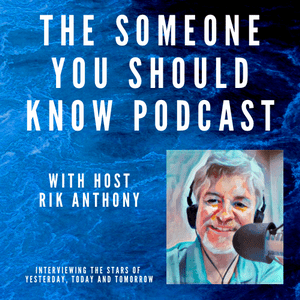Do You Have Time to Save a Planet?
Photo by Saikiran Kesari on Unsplash
People in our generation can take several approaches to climate change. The first is to be grateful that we won’t be around that much longer to worry about it. We can let somebody else worry about it. But that approach is generally considered cowardly, insensitive toward our children and grandchildren, and not especially constructive.
A second approach is to focus on how older adults are particularly vulnerable to the effects of climate change. It is a fact that our bodies are less able to compensate for certain environmental hazards, such as air pollution. We also are more likely to have health conditions that make us more sensitive to extreme heat and cold. We are more likely to have compromised immune systems that make us more prone to severe illnesses contracted from insects (Lyme Disease) and water (diarrhea, dysentery, E. Coli). According to a recent article in the British medical journal Lancet, for example, heat-related deaths among adults older than 65 are up 85% compared with 1990-2000.
Finally, we may depend on others for medical care and assistance or may have limited mobility, all of which at us at greater risk in the event of hurricanes, tornadoes, wildfires, flooding, or other extreme weather events.
While all this may be true, seeing ourselves as vulnerable victims has disadvantages. In particular, it plays into ageist stereotypes of older adults as weak and helpless. “Viewing older individuals only as passive victims of environmental threats is an overly narrow and limiting perspective,” says Dr. Karl Pillemer, a Cornell University professor of human ecology.
That leaves the third approach: actively working to better the environment and to prepare for the new climate realities. “Older adults around the world can be active participants rather than passive actors when it comes to climate change,” says Pillemer, “by mobilizing in large numbers to address local environmental problems through civic environmentalism.”
In other words – stop me if you’ve heard this one – think globally, act locally.
Thinking Globally
One climate-change organization that encourages older adults to take the third approach is Third Act. Founded in 2022 by author and long-time climate activist Bill McKibbon, Third Act professes to be “building a community of Americans over the age of sixty determined to change the world for the better.” Specifically, it organizes older adult volunteers to become active in national campaigns on a panoply of climate-related issues and voter Education efforts. It also encourages members to form local or state working groups to study issues and plan campaigns.
While Third Act deliberately seeks to harness the experience and talents of older adults, Citizens Climate Lobby appeals across generations to “empower everyday people on climate policy.” Founded in 2007, it describes itself as “a nonprofit, nonpartisan, grassroots advocacy climate change organization focused on national policies to address the national and global climate crisis.” More than 560 local chapters (including international chapters) help volunteers develop the skills to lobby officials in their state on climate change issues.
Acting Locally
If lobbying, marching, and writing to politicians are not your cup of tea, there are numerous ways to address climate change closer to home – where you also are likely to see immediate results of your efforts. Environmental groups eagerly welcome older adult volunteers, both for their lived experience and because they have more time for engagement.
Opportunities abound. They include planting trees to shade streets and sidewalks, restoring parks and other green spaces, growing produce in a community garden, monitoring water quality in a watershed, reducing your home’s carbon footprint, composting kitchen waste, promoting recycling, and educating children about the environment.
You can find ongoing projects or like-minded citizens at land conservation organizations, the state’s cooperative extension office, an area nature center or science center, trail maintenance organizations, watershed management group, or through online platforms such as volunteermatch.org. A great site for background information and project ideas is the Aging and Climate Change Clearinghouse at Cornell University,
Helping Yourself
While most volunteers are drawn to environmental causes by a sense of responsibility for the world and a commitment to leave a better world behind, there’s also strong evidence that environmental activism promotes healthy aging. In a study of older adults who participated in programs to improve outdoor environments, volunteers improved their physical health, improved their mental wellbeing, and reported feeling a sense of purpose.
People who comprehend the urgency and severity of the climate threat often struggle with sadness and Depression, says Lawrence MacDonald, author of Am I Too Old to Save the Planet? A Boomer’s Guide to Climate Action. “Working with others to address the threat can help to relieve these feelings,” he says. “We can only free ourselves from our climate culpability by acknowledging it and vowing to do all we can to repair or minimize the damage.”
If you find yourself looking for a new sense of purpose, or if you find yourself with a surplus of time on your hands, know that environmental groups are looking for people like you, and they have important work for you to do.


























